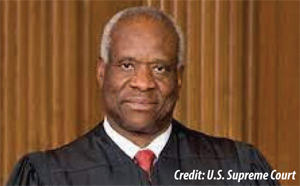Skyrockets In Flight… Your Letter’s A Delight!
Declare Your Independence, Write A Letter!
[Guaranteed Devoid Of Editing, Spelling, Grammar, Or Legal Advice]
Will I be liable for taxes on the interest paid on a savings account if I am added to my mother’s account?
My mother is elderly, and she worries about her bills being paid if she’s incapacitated. She wants to add me to her savings account, but I would not be withdrawing money from the account unless it was to pay her bills in the event of a catastrophic health emergency. I would not personally benefit from the interest accrued in the account.
Who Pays The Taxes? Depends…
Very common for mom and dad to “add a kid to the account.” Putting a kid on the account might mean making the child the co-owner of the account or only giving the child access to the account to pay bills while the parent is alive. Sometimes parents “put the kid on the account” by naming a child as “pay on death” beneficiary without current access. These all have different consequences.
Mother might make you co-owner of an account holding only mother’s money and using mother’s social security number. Either of you may withdraw any amount at any time for any purpose. If you outlive mother, the money is yours. This is a joint account. The income is taxed to mother until she dies. After death, the income is taxed to you. If you put your social security number on the account after mother’s death, you will receive the Form 1099 reporting the interest in your name to the Internal Revenue Service (“IRS”). If you do not substitute your social security number for your mother’s after she dies, you will still be taxed on that interest income as “income in respect of a decedent.” That is, you’ll be taxed when the IRS catches up with you.
Mother might give you authority to spend the money in her savings account, without making you an owner. This is like a power of attorney. You do not own the money and should not spend it on yourself. When mother dies, your authority over the money dies. You are not liable for the income or the taxes. But now you’ll be heading to probate court to find out who gets the balance of the money in the account.
Finally, mother might make you “pay on death” beneficiary. Just including this one for completeness since you would not be able to access the account until after mother dies. Not too helpful when it comes to “pay[ing] her bills in the event of a catastrophic health emergency.” With “POD” accounts, the money is yours when mother dies, but not before. Once the money is yours, the interest is now income to you and you must pay the resulting tax.
Is This A Good Idea?
Answer: Well, that depends…
What if mother is poor? Let’s say mother owns no real estate, has no other investments, no other kids, and this savings account is the result of frugal conservation of her Social Security retirement income. Now you can understand making the only child a joint owner of the savings. It doesn’t cost anything to set up, there’s no one else to complain, and there’s no need for accountability. If you blow all mother’s meager savings on your own selfish desires… well, mother gave you the money when she made you joint owner. She screwed up, she trusted you. Actions have consequences. And if you are loyal, loving, and true, she has solved a problem with little time and expense.
What if mother is not poor? Mother owns a home. Mother has investments. Mother has other kids.
Doesn’t really matter how much or how many. Now you have the opportunity for conflict that can cost much more than the savings account dollars. If there is real estate or significant dollars, mother (or father) should be considering a trust. With the trust comes accountability along with the access. You can pay the bills, but you are responsible to mom and the other beneficiaries. And after mom passes, you distribute the remaining assets according to the trust.
Common Mistake That Screws Everything Up
So mom or dad put you on the account. You want to help out by shopping for them. You go to your big box membership store and buy groceries and necessaries for your parent. You circle the items on the receipt that you have delivered to their home. You repay yourself from their account. You keep copies of the store receipt and the ATM withdrawal slip in a special shoe box. What could go wrong?
Plenty. When you shop for mom or dad, use their money and their credit or debit card. If you use your own because it is more convenient or other common-sense reason, your loving parent will be penalized when it comes time for Medicaid.
How can this be? Medicaid presumes that anything you buy for your folks is a gift. And without a contemporaneous written agreement, Medicaid must presume that your purchases for mom and dad were gifts. That means that any money mom and dad gave you was also a gift. You gifted them. They gifted you. And any gifts made in the last 5 years before applying for Medicaid will result in imposition of a penalty period and denial of benefits.
What to do? Use mom or dad’s credit or debit card when making purchases for them. And do not worry about their bank balances, long-term care will dispose of those funds pronto!
Sometimes We Get An Easy One
Most kids don’t know what mom and dad own. They don’t know what, they don’t know where, they don’t know how much. Typical. So how are you supposed to know about all that when they die?
I got granted Petition? order to dispense with administrator over my mom’s estate witch is for small estates
Well turned out estate is larger than I thought so there are investment accounts that are not on letter of administration so they won’t release what do I do
Pretty tough.
You didn’t think there was much stuff, so you filed under the small estate procedure. Reasonably. You found out there was more. Now you must file a regular probate case. And send out notices. And prepare an inventory (including the stuff you handled using the small estate order). And give an accounting. Et cetera.
Most counties have a county website. Most county websites have a special page for the county probate court. Most county probate court website pages have a letter from the Chief Judge of the county probate court. Most letters from the Chief Judge of the county probate court on the website say something like:
An attorney should be consulted and retained to handle the probate proceedings. Estates are almost always complicated enough to justify such professional services. My experience as a judge has been that in most cases in which someone tried to probate an estate without legal assistance, it has been a disaster and the decision was regretted.
www.accesskent.com/Courts/Probate/proceeding.htm
So, probably not such a bad idea to talk this over with an attorney with some probate experience. I happen to know a few…
Find a FREE LifePlan™ Workshop Near You!
Sign up now to register for our LifePlan™ Workshop. Attend in person or watch online with our on-demand option.
Free Registration
No Poverty. No Charity. No Waste.
It is not chance. It is choice. Your choice.
Get Information Now. (800) 317-2812



